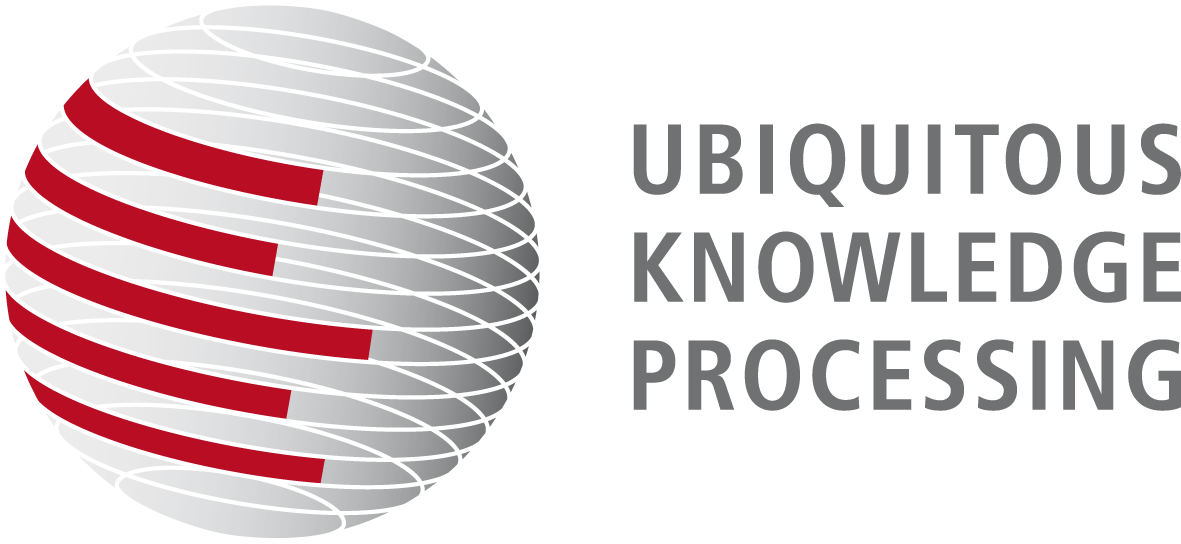Summer Term
Course content
In this lecture, we discuss the foundations of information management. In the first part of the course, we focus on relational databases. In the second part, we provide an introduction to automatic language- and knowledge processing with a particular focus on text analytics.
Key topics:
- Foundations of information management
- Characteristics of information systems
- Information storage and retrieval
- Declarative and navigational access
- Database systems and architectures
- Data redundancy and data integration
- Data independence
- Database architecture models
- Conceptual data modeling
- Foundations of knowledge representation
- Entity relationship model
- UML structure diagrams
- Logical data modeling
- Relational model
- Relational algebra
- Relational calculus
- Relational database design
- Database anomalies
- Normalization
- Query languages
- SQL
- Query-by-example
- Transactions and multi-user environment
- Serialization
- Locks, 2PL
- ACID criteria, isolation levels
- Index structures and performance
- Recent database concepts
- In-memory databases
- NoSQL
- Foundations of language and knowledge processing
- Text as a knowledge resource
- Text formats and databases
- XML
- Pattern search
- Linguistic preprocessing
- Text corpora
- Lexical resources and ontologies
- Information retrieval
- Vector space models
- Information extraction
- Named entity recognition
- Fundamentals of machine learning
Qualification Goals
After attending this course, students are in a position to
- name and explain the foundational concepts of information management and language and knowledge processing,
- explain, implement, and maintain information systems,
- interpret and construct formal data models,
- design and use relational databases,
- name and compare different language-related data sources,
- extract and retrieve basic information from natural language text.
Course content
All you need to know about contemporary natural langauge processing (NLP) using deep learning. More about foundations, less about particular frameworks or implementations.
Main topics:
- Deep learning foundations (learning from data, learning problem formalization, loss functions, training with backpropagation, evaluation)
- NLP as supervised task learning
- Language representation (word embeddings, multi-lingual embeddings)
- Prominent architectures (convoluational neural networks, recurrent neural networks)
- Contemporary architectures and foundational models (transformers and BERT)
- Applications (text classification, text generation, translation)
Course content:
In this course, we present real-world, state-of-the-art applications of natural language processing and their associated ethical questions and consequences.
Machine Learning and Natural Language technologies are integrated in more and more aspects of our life. Therefore, the decisions we make about our methods and data are closely tied up with their impact on our world and society. In this course, we present real-world, state-of-the-art applications of natural language processing and their associated ethical questions and consequences. We also discuss philosophical foundations of ethics in research.
Processing of unstructured web content
- Introduction
- Philisophical Foundations, History
- Bias and Misrepresentation
- Ethics of Generative AI
- Incivility in Communication
- Privacy & Security
- Language of Manipulation
Goals
After completion of the lecture, the students are able to
- Explain philosophical and practical aspects of ethics
- Show the limits and limitations of machine learning models
- Use techniques to identify and control bias and unfairness in models and data
- Demonstrate and quantify the impact of influencing opinions in data processing and news
Course content
The seminar will delve into the transformative impact of large language models (LLMs) on mental health research and practice. These LLMs provide unprecedented opportunities for analyzing and generating vast amounts of language data, holding immense potential to revolutionize various aspects of psychology. The seminar will cover the foundations of LLMs, exploring their ability to generate human-like linguistic output. It will emphasize the societal challenge posed by psychological issues and discuss how AI models, with their rapid advancements, can contribute to bridging the gap between psychological principles and real-world clinical AI-based applications. We will examine the opportunities and risks posed by LLMs in mental health, contributing to the discourse on responsible, user-friendly, equitable, and secure implementation of LLM-based tools for treatment and intervention.
Basic knowledge of machine learning and NLP is required, although these will be touched upon during the introductory session.
Winter Term
Course content:
This lecture will present natural language processing (NLP) methods to automatically process large amounts of unstructured text from the web and analyze the use of web data as a resource for other NLP tasks.
Search Engines, Spelling Correction, automatic Question Answering, Translation – the Web is both application area and valuable resource for many useful, everyday applications. This lecture will present Natural Language Processing (NLP) methods to automatically explore the World Wide Web, perform Web Mining and gain insights into open research problems. In our practice sessions, we introduce state-of-the-art NLP toolkits and work on functional NLP projects.
Processing of unstructured web content
- Introduction
- NLP Basics – Tokenisation, Part of Speech Tagging, Chunking, Stemming, Lemmatization, Semantic and Syntactic Analysis
- Web contents and their characteristics, Web Genre Identification
NLP applications for the web
- Information retrieval – introduction to the basics of information retrieval
- Web information retrieval – natural language interfaces for web information retrieval
- Crowdsourcing
- Argument Mining
- Question answering (QA): Factoid QA, Knowledge Base QA, Community QA



